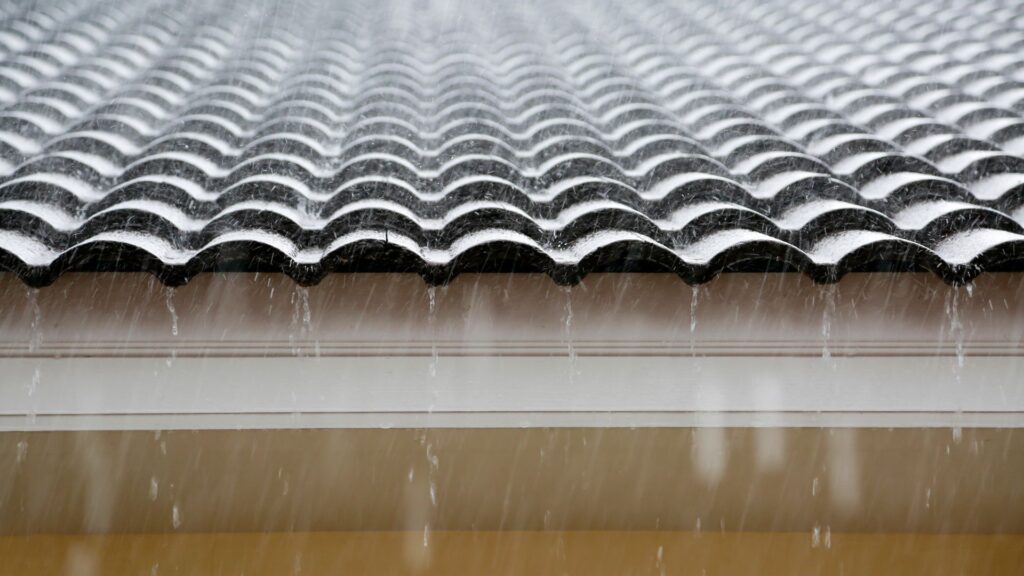
Whether you’re at home or work, one of the last things you want is a leaky roof.
Flood damage caused by water seeping through your tiles and rafters can be extensive and incredibly disruptive to your home life or business.
Living in the UK means we can never truly predict the weather from one month to the next.
This blog will examine some of the potential causes of roof leaks and – most importantly – how to stop them.
What Can Cause Roof Leaks?
Clearly, roofs play a vital role in keeping our buildings warm and dry.
They are constructed in a way to help ensure that properties are well insulated from the elements.
But that doesn’t mean that they are completely impervious.
Here are some of the most common causes of roof leaks:
General wear-and-tear
An older roof will be prone to roof leaks.
Whether you’re a homeowner or building manager, it’s a good idea to carry out regular maintenance.
Finding and fixing a small problem before it turns into something more significant will help reduce the issues caused by wear and tear.
Loft condensation
If there is poor ventilation in your loft, condensation may cause problems.
Condensation will result in a build-up of moisture that will subsequently drip down and cause a roof leak.
This will occur in your loft space, as it is the highest point of your home.
Gutter problems
Your gutters provide an escape route for rainwater and leaf debris, clearing away your roof and providing a passage away from your house. However, if your gutters are blocked, the water will remain there and start to cause you problems across exterior walls.
A clogged gutter can be blocked with debris, resulting in water remaining in the gutter pipe. As more water flows from the roof, the gutters will overflow and drench your roof and walls in moisture, causing water stains. Eventually, this will cause issues such as mould inside your home.
Clearing and checking your gutters regularly is essential to prevent this from happening. Specifically, check that your gutters are clear for rainfall after a storm where debris may fly in the air.
How To Stop Roof Leaks
So, how can you actually stop roof leaks?
Fortunately, many prevention techniques can be used.
Here are some of the best and most effective tips for protecting your buildings from water damage.
Cleaning gutters
As we mentioned above, clogged gutters are a common cause of roof leaks.
Keeping them clear of leaves and debris is essential to allow water to run along them and down drainpipes.
It’s a good idea to try and get them serviced twice a year.
Keeping roof tiles in good repair
Severe weather (strong winds and rain) can loosen roof tiles.
Much like with gutters, it’s recommended that you regularly inspect your tiles.
If you find any missing, it’s vital to replace them immediately to prevent further leaks.
Any noticeable holes elsewhere in the structure of your roof should also be repaired urgently.
Ventilate Your Loft
To beat condensation, ensure your loft is adequately ventilated.
A loft vent or an attic window could be installed to reduce the amount of condensation collecting in the loft space.
Check the drip edge
Drip edges play a crucial role in protecting your building from the elements.
When checking the drip edge, you should check for any damage.
Harm can be caused to the fascia board that sits underneath if the drip edge is not working correctly.
It is recommended to monitor the drip edge often to prevent flood damage from impacting your property.
Vinci Response’s Flood Damage Cleaning Services
Keeping an eye on your roofs is vital to help minimise the risks of water leaks and subsequent flood damage.
It’s much easier to fix an issue you’re aware of. And the earlier potential roof leaks are identified, the less expense will likely be incurred.
If you do have any flood water damage caused by roof leaks, professional cleaning companies will often be the best remedy.
Even the smallest of leaks can cause severe damage, especially if left untreated.
Rotting wood and mould can impact the structural integrity of buildings and can also pose human health risks (read more about the health and safety risks of mould)
To find out more about Vinci Response can help with flood water damage, contact our expert team today.